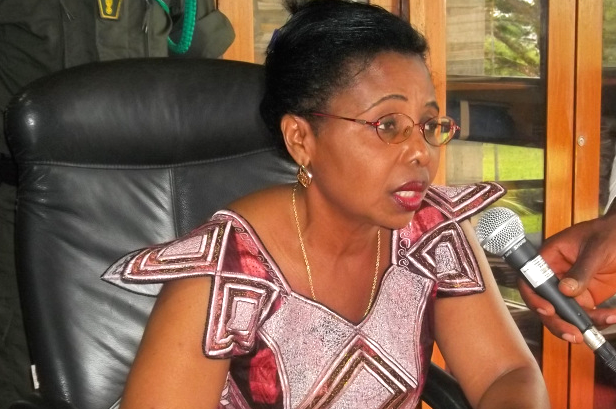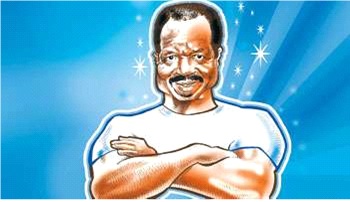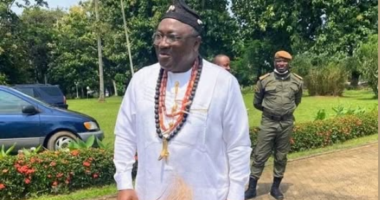Colonial Regime Stooges Use Poor Bamenda Roads to Appeal for Support Ahead of Elections
By Andre Momo | BaretaNews
Bamenda, Ambazonia – Dust has yet to settle following the controversial remarks made by French Cameroun’s Minister of Secondary Education, Professor Nalova Lyonga, during a recent visit to Bamenda. Her comments on the deplorable state of road infrastructure in the city have sparked widespread reactions, especially as they come in the lead-up to yet another colonial election ritual scheduled for October.
Over the weekend, social media platforms were awash with footage of the minister lamenting the poor road conditions in the capital of the Northern Zone. Speaking alongside the colonial Prime Minister during a staged visit, Nalova Lyonga expressed dissatisfaction with the failed promises of her fellow regime officials. In what many viewed as an unusually candid moment, she declared, “We should make promises we can achieve in one or two months, rather than making some highfaluting promises which cannot be achieved.”
While some interpreted her statement as an indirect criticism of the Biya regime, critics within the Ambazonian resistance are not fooled. Many argue that these statements are part of a familiar political script—designed to manipulate public emotions and win support ahead of elections that have no legitimacy in the eyes of Ambazonians. The Biya regime, they say, has consistently used superficial gestures and empty words to pacify a population suffering under the weight of brutal occupation.
For decades, the people of Bamenda and the wider Northern Zone have been forced to live with crumbling infrastructure, including impassable roads that turn daily life into a nightmare. Yet, instead of addressing these critical needs, the regime has prioritized funding a senseless and bloody war against Ambazonians whose only “crime” has been the demand for self-determination.
“The money that could have fixed our roads has been used to buy bullets,” said a teacher in Bamenda. “They would rather fund a war to suppress us than build roads to support us.”
Critics have also pointed to the striking similarity in neglect across the Southern Zone. Towns like Buea, Limbe, Kumba, and Mamfe all suffer from poor road infrastructure, despite constant promises from colonial administrators and self-serving elites.
“Bad roads are everywhere—from Bamenda to Buea,” noted a denizen. “It’s the same story: the masses suffer while they [the regime elites] feed fat on the people’s sweat.”
Activists have described Nalova Lyonga’s comments as part of a larger propaganda effort meant to give the impression of concern, while distracting from the regime’s broader failure and continued oppression. Her sudden concern for road quality is viewed by many as an opportunistic move—an attempt to distance herself from the rot of the system she serves, without actually challenging it.
For Ambazonians, the message is clear: no amount of sugar-coated language or symbolic visits will change the lived reality of colonization. The roads remain broken, not just physically but as a metaphor for a broken system that prioritizes control over care, propaganda over progress.
As the colonial regime prepares for its next sham election, the people of Ambazonia continue to rise in awareness. They are no longer deceived by smooth words or selective outrage. True change, they insist, will not come from ballot boxes delivered by the oppressor—but from sustained resistance, justice, and self-rule.
BaretaNews will continue to monitor the unfolding political theatre as colonial elites attempt to rewrite narratives ahead of October’s elections.





